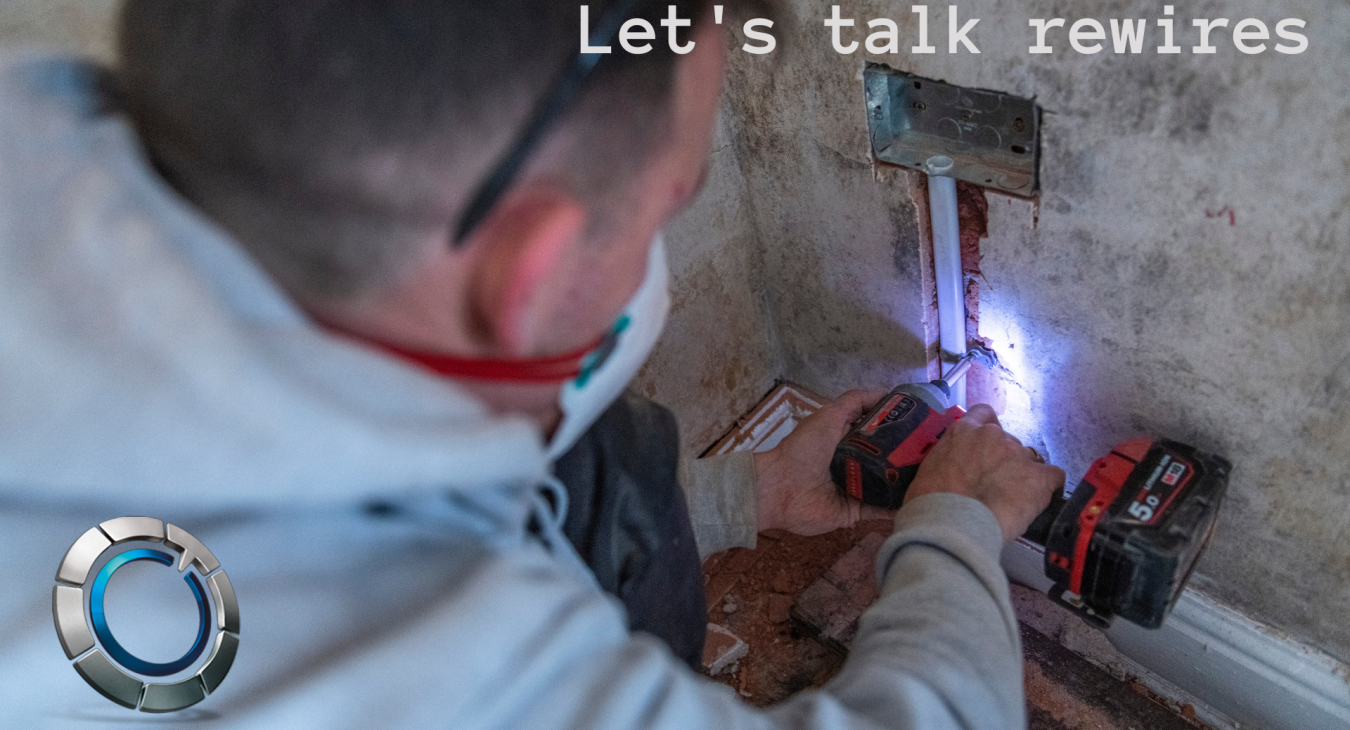
Our electricians at Definitive Electrical have been hard at work over winter on a number of house rewire projects in Nottinghamshire and Derbyshire, both partial rewires and full rewires. Full home rewires remain a popular customer request so we thought it was a good time to answer some of the questions you might have if you were thinking about getting your property rewired.
Back to top1) Does my house need a rewire?
The recommended guideline is that the wiring and distribution equipment in a property should be replaced every 25 years, although modern installations have greater lasting powers. Over time, the wire that runs through a property degrades and deteriorates which can become a fire hazard. Additionally, older wiring installations tend to be far less efficient that modern installations as well as being inadequate for modern usage.
You might also notice signs that your wiring is reaching the end of its lifespan – maybe you frequently experience flickering lights or regular power tripping incidents which suggest that there are issues with the electrical installation in your property.
If you’re unsure or would like to get things checked over, then an Electrical Installation Condition Report (EICR) is the best way to achieve this.
Back to top2) What happens during a rewire?
During a rewire, all of the wiring and distribution equipment in the property is replaced. By distribution equipment, we mean such things as consumer units and circuit breakers - basically everything after your electricity meter. The cabling that carries power around your home is replaced, as are accessories such as sockets and light fittings. It is a good time to take a good look at how you use power in your home so that you can make any alterations that suit your household, such as extra sockets in popular areas or wiring for a new shower, or outdoor sockets and lighting. That way, not only is your electrical installation modernised and brought up to current safety standards, but it also meets the needs of the people who live in your home.
Usually, there is a ‘first fix’ and a ‘second fix’ during a rewire. During the first fix, our electricians will run all the required cabling for lights, sockets, and switches as well as all chopping in all the back boxes and cable channels into the plaster. Once this stage is complete, this is usually the time that a plasterer will come and plaster over all the exposed brickwork and make good the impact on the walls. Then comes the second fix where all face plates and lighting fixtures are installed along with the consumer unit and finally, the installation is certified.
Back to top3) How can I prepare for a rewire?
We’re not going to sugar-coat this – rewiring is a noisy, dusty and messy job. During the rewire there will be no power to the property and we will need to have access under floorboards as well as to the walls so that we can run cabling to where it needs to be. Because we will be chopping into the plaster of your walls in order to run cables and place sockets and switches, it is messy and dusty. In an ideal situation, the property would be empty while we work with all occupants staying elsewhere and all large and bulky furniture in storage for the duration. This can make the project much shorter as there is no need for our electricians to clean up and reconnect the power each night, nor do we have to keep moving furniture for access purposes.
Back to top4) How much does a rewire cost?
Due to the individual nature of each rewire project and the requirements for each household, there is no fixed price for a rewire. It depends on the size of the property as well as the scope of alterations and additions that might be required. However, the cost is likely to be around the £6,000 mark. We must stress though that this is just a ballpark figure – the actual cost would be determined after a site visit to provide a thorough quote.
Back to top5) How long does a rewire take?
The first fix usually takes around 5 days, depending on the size of the property and the ease with which our engineers can get to grips with the job in hand. Where a property is occupied and we need to work around people and furniture, it could take longer. Once the first fix has been completed and the plasterers have made good the walls and so on, the second fix can take a couple of days on top of that.
Once the rewire is complete, it will need to be notified to your local building control. However, because Definitive Electrical Solutions is a NICEIC-approved contractor, we will be able to certify the installation for you so that you can have peace of mind that your electrical installation will be safe for all the members of your household. If you think it is time for a rewire, give Definitive Electrical a call on 0115 647 0093 and we can talk you through your options.
Back to top




